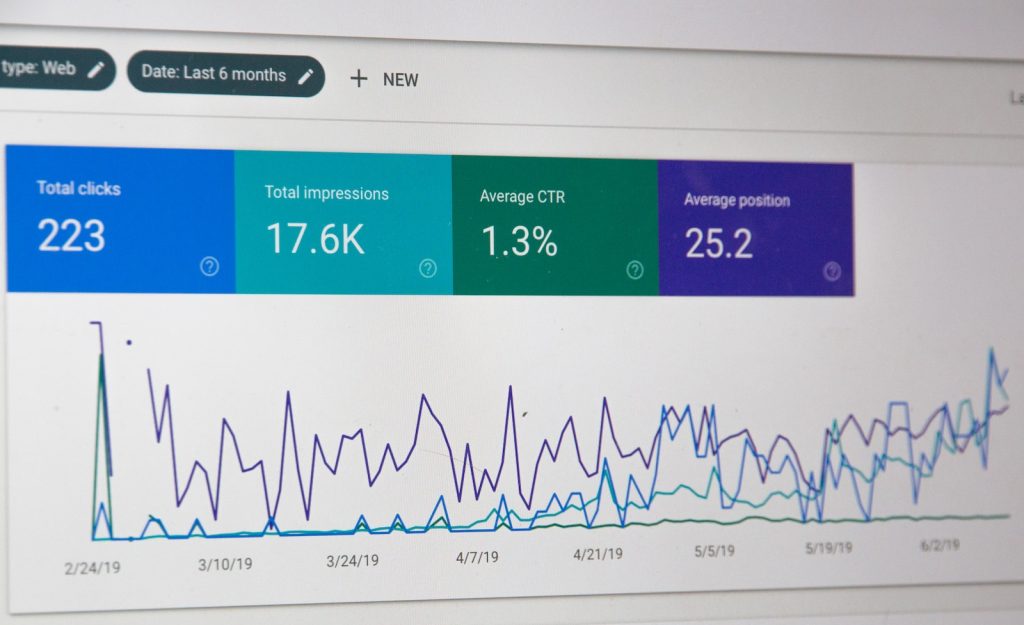Keyword cannibalization is a common issue that can negatively impact your SEO efforts. When multiple pages on your website target the same keyword, they end up competing with each other, diluting the authority of your pages. Understanding the impact of keyword cannibalization and how to detect and fix it is crucial for optimizing your website’s performance. In this blog post, we will explore the concept of keywords cannibalization, how to identify cannibalizing keywords on your website, strategies to address SEO cannibalization issues, and tips for avoiding keywords cannibalization in your SEO strategy.
Understanding the Impact of Keyword Cannibalization
Keyword cannibalization can harm your SEO efforts by diluting the authority of your pages.
When multiple pages on your site target the same keyword, they end up competing with each other.
Identifying keyword cannibalizations is crucial for optimizing your website’s performance.
Keyword cannibalization can confuse search engines and impact your site’s rankings.
Understanding the impact of keywords cannibalization can help you prioritize optimization efforts.
Detecting Cannibalizing Keywords on Your Website
Identifying keyword cannibalization is crucial for optimizing your website’s performance. Here are some ways to detect cannibalizing keywords on your site:
1. Use tools like Google Search Console to identify duplicate content and keyword overlap.
2. Analyze your website’s organic search traffic to pinpoint keywords cannibalization issues.
3. Check for overlapping keywords in your meta tags, headings, and content across pages.
4. Monitor your site’s rankings for targeted keywords to detect cannibalization.
5. Regularly audit your website for keyword cannibalization to stay proactive.
Addressing SEO Cannibalization Issues
When it comes to dealing with keyword cannibalizations on your website, there are several strategies you can implement to fix the issue and optimize your SEO efforts:
Consolidate similar content or pages
One effective way to address keyword cannibalizations is to consolidate similar content or pages on your website. By merging or combining pages that target the same keywords, you can prevent them from competing with each other and diluting your site’s authority.
Implement 301 redirects
Utilize 301 redirects to merge cannibalizing pages and consolidate authority. Redirecting duplicate content to a single, preferred page can help search engines recognize the correct page to index and rank, avoiding confusion and competition among your pages.
Update internal linking structures
Review and update your internal linking structures to guide search engines to the correct page for targeted keywords. By ensuring clear and relevant internal links, you can help search engines understand the hierarchy and relationships between your pages, reducing the chances of cannibalization.
Use canonical tags
Implement canonical tags on your pages to indicate the preferred page for specific keywords. This helps search engines identify the primary page to index and rank, consolidating authority and avoiding confusion caused by multiple pages targeting the same keywords.
Optimize content for long-tail keywords
Consider optimizing your content to target long-tail keywords and variations. By focusing on more specific and unique keywords, you can reduce the likelihood of cannibalization and better align your content with user search intents and preferences.
Strategies to Fix Keyword Cannibalization
When it comes to addressing keyword cannibalization on your website, there are several effective strategies you can implement. Here are some key approaches to fix this issue:
Create a Content Strategy
Develop a comprehensive content strategy that focuses on unique keyword targeting for each page. This will help ensure that your pages are not competing with each other for the same keywords.
Perform Keyword Research
Conduct thorough keyword research to identify new opportunities and diversify your content. By targeting different keywords on each page, you can eliminate cannibalization.
Optimize Meta Tags
Optimize your meta titles and descriptions to differentiate pages and avoid keyword overlap. Make sure that each page has a unique focus and keyword targeting.
Monitor and Adjust Keyword Targeting
Regularly monitor your keyword targeting and adjust as needed to avoid cannibalization over time. Stay vigilant and make necessary changes to optimize your content effectively.
Update and Refresh Content
Regularly update and refresh your content to maintain relevance and authority. This will also help prevent cannibalization by keeping your pages up-to-date and valuable.
Avoiding Keyword Cannibalization in Your SEO Strategy
When it comes to optimizing your website for search engines, avoiding keyword cannibalization is crucial. Here are some key strategies to help prevent this issue:
1. Map out your website’s keyword targeting strategy
Organize and prioritize keywords for each page to avoid duplication and ensure clear keyword segmentation.
2. Utilize keyword mapping tools
Tools like SEMrush and Ahrefs can help you efficiently manage and track your keyword targeting across different pages and categories.
3. Ensure keyword segmentation
Make sure each page targets specific keywords and search intents to prevent overlap and cannibalization.
4. Regularly review and update your keyword strategy
Keep your keyword targeting fresh and relevant to stay ahead of potential cannibalization issues.
5. Opt for long-tail keywords and variations
Targeting specific long-tail keywords can help you reach a more niche audience and reduce the risk of cannibalization.
Tools to Identify Keyword Cannibalisation
To effectively identify and address keyword cannibalization on your website, it’s crucial to leverage the right tools. Here are some tools that can help you detect and resolve cannibalization issues:
SEMrush – A comprehensive SEO tool that enables you to perform keyword research, track rankings, and analyze your website’s performance.
Ahrefs – Another powerful SEO tool that provides insights into backlinks, keywords, and competitor analysis, helping you identify cannibalization issues.
Moz – Known for its robust SEO capabilities, Moz offers tools for keyword research, site audits, and rank tracking to uncover keyword cannibalization problems.
Google Analytics – A free tool that tracks website traffic, user behavior, and keyword performance, allowing you to monitor cannibalization trends.
SEO auditing tools – Various tools like Screaming Frog, Sitebulb, or DeepCrawl can help you audit your website for content duplication and keyword overlap.
By utilizing these tools effectively, you can identify and address keyword cannibalization issues, ultimately improving your website’s SEO performance and rankings.
Preventing Keyword Cannibalization from Harming Your Rankings
Regularly audit your website for duplicate content and overlapping keywords. Implement proper redirects and canonical tags to consolidate authority. Educate your team on the importance of avoiding keyword cannibalization. Monitor your site’s performance metrics to track the impact of fixes. Stay informed about SEO best practices and algorithm updates to adapt strategies.
Optimizing Content to Eliminate Keyword Cannibalization
Identifying and addressing keyword cannibalization issues is essential for maintaining a strong SEO strategy. Here are some key steps to optimize your content and eliminate keyword overlap:
1. Identify and consolidate duplicate content:
Start by conducting a thorough audit of your website to identify pages with overlapping content or targeting the same keywords. Consolidate similar content to avoid diluting authority and confusing search engines.
2. Optimize meta tags and descriptions:
Ensure that each page on your website has unique meta titles and descriptions that target specific keywords. This differentiation will help search engines understand the relevance of each page and avoid cannibalization.
3. Enhance internal linking structures:
Review your internal linking strategy to guide users and search engines to the most relevant pages. Incorporate keyword-rich anchor text to reinforce the connection between related pages and improve SEO performance.
4. Regularly update and refresh your content:
Keep your content fresh and updated to maintain relevance and authority in search results. Regularly revisit your existing pages to incorporate new keywords, address user queries, and prevent keyword cannibalization.
5. Monitor keyword performance metrics:
Track the performance of your targeted keywords and analyze any changes in rankings or traffic. Adjust your content strategy based on these metrics to optimize for search intent and eliminate cannibalization over time.
Staying Ahead of SEO Keyword Cannibalization Trends
1. Keep abreast of SEO industry news and updates to anticipate trends.
2. Attend webinars and conferences to learn about emerging SEO strategies.
3. Engage with SEO communities and forums to discuss keyword cannibalization.
4. Experiment with new keyword targeting techniques to stay innovative.
5. Adopt a proactive approach to SEO optimization to prevent cannibalization issues.
Monitoring and Adjusting for Keyword Cannibalization Over Time
Track keyword rankings and performance metrics to monitor cannibalization.
Analyze user search behavior and intent to refine keyword targeting strategies.
Regularly review and update your keyword mapping to prevent duplication.
Implement A/B testing to optimize content for better keyword targeting.
Stay flexible and adapt your SEO strategy to evolving search trends and algorithms.
Conclusion
Keyword cannibalization can have a detrimental effect on your SEO efforts by diluting the authority of your pages and confusing search engines. It is crucial to identify and address cannibalization issues to optimize your website’s performance. By implementing strategies such as consolidating content, updating internal linking structures, and targeting long-tail keywords, you can effectively fix keyword cannibalization and prevent it from harming your rankings. Stay proactive, regularly audit your website, and adapt your SEO strategy to avoid keyword cannibalization and stay ahead of industry trends. Remember, with the right approach, you can eliminate cannibalization and improve your site’s visibility and performance in search engine results.



